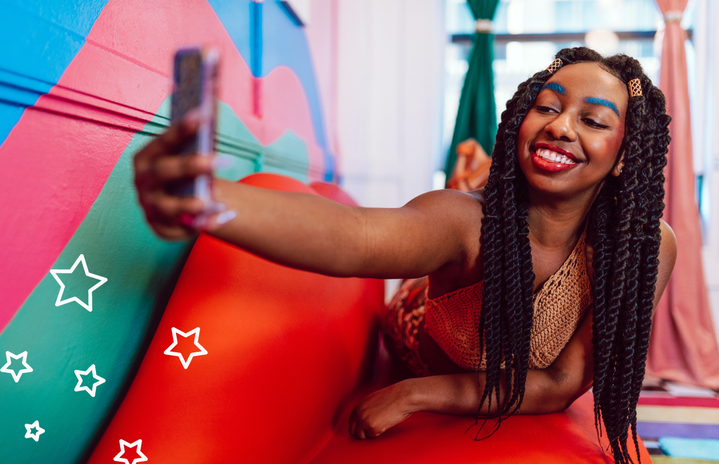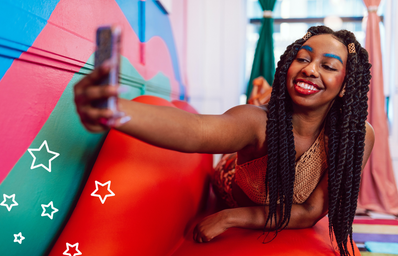You can’t scroll on any social media platform without stumbling across a filter. Many of them I see change your facial structure completely. I wanted to explore the effects these filters have on our confidence and well-being. Why have they changed so much and why do we use them so frequently? Let’s explore.
we live in a time where filters replace
the natural beauty of our own face
this new standard of beauty is copy and paste
faux freckles and contour and a small, tiny waste
young girls look at their pictures with shame and disgrace
unaware of the raw beauty they continue to erase
Their Evolution
I remember the early days of Instagram and Snapchat. I’d add a black and white filter to enhance my photos and add a gloomy vibe (I was a self-proclaimed “emo” kid). Other filters could be used to brighten a photo or match the theme of your feed. On Snapchat, I could be a unicorn that barfed rainbows or a puppy dog with a giant tongue. It was purely for entertainment.
Now, in 2022, filters are completely different. What do I mean by that? The most popular/most used filters I see change your bone structure, your nose, lip size, and even lighten your skin tone. We can’t avoid these filters, because they are everywhere. They are advertisements, used to promote an upcoming movie or skincare line. We see many trends in our recommendations that include different filters (the one that can change your hair color while changing your entire face comes to mind). Or they can be games we share with friends. We see them and are pushed to use them, even when we don’t want to change the way we look.
Compeeting with ourselves
Because of the high use of filters, we are so used to seeing a version of ourselves that doesn’t exist. The filter comes off, and we don’t always like what we see as a result.
Once upon a time, you might have compared yourself to someone you see on your Instagram feed. Now, you are comparing yourself with yourself.
Many of us would rather look like the heavily filtered versions of ourselves and it’s getting really toxic. It has certainly affected my self-esteem and made my insecurities even worse. TikTok has several filters labeled as ‘beauty’ or ‘beautiful’ or ‘glow look’, all of which make significant changes to your appearance that can’t be achieved with the use of makeup. It makes you think, are my features not beautiful the way they are now? (Hint: your uniqueness is what makes you so special).
The feminine urge to use a filter
Most of these filters are geared towards women or femme-presenting people. It adds even more pressure on us to live up to unrealistic beauty standards. A filter is artificially made and gets rid of pores and fine lines (you know, the stuff that makes us human). How are we ever expected to live up to that in real life?
I get it though. We want to use a filter when we aren’t feeling ourselves. Without realizing it, though, we grow a reliance on them, until we can’t take a picture without one. I couldn’t imagine how middle school me would react to all these filters. My best guess is that my insecurities would have doubled. I feel for the kids that are gaining access to all this technology so young.
I wanted to continue the conversation about the effects of beauty filters. If you are feeling insecure, I am right there with you (we are not alone). Just remember that what you see on social media is fake. You don’t need to look edited to look beautiful. It’s not necessary to look like everyone else to be beautiful either. You just need to look like yourself.


